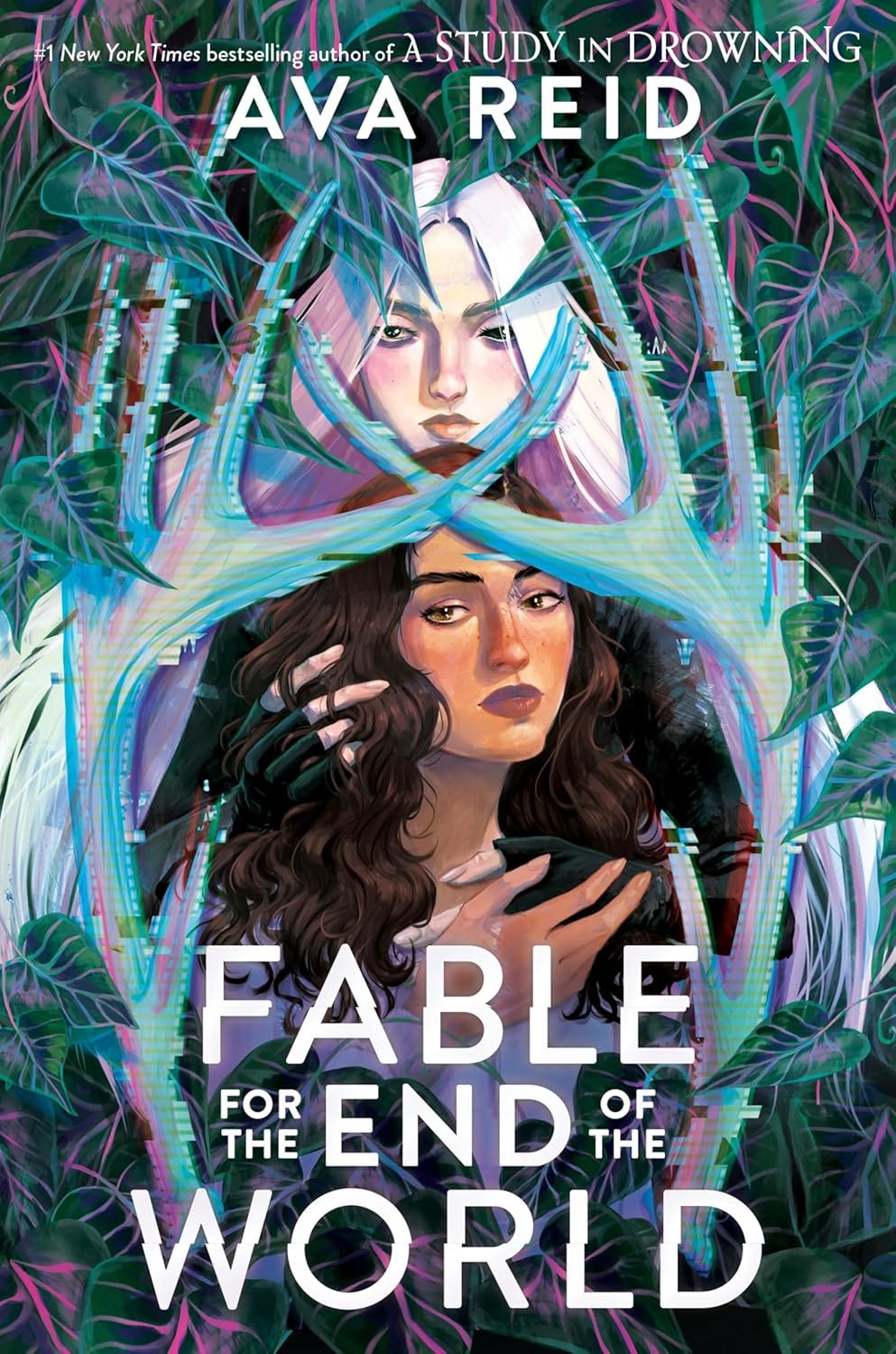Fable for the End of the World (Mild Spoilers Review)
I was all in on Ava Reid’s sapphic dystopia until I read the ending, and we need to talk about it.
*This review contains minor spoilers for Fable for the End of the World*
Two hundred pages in, and I think I’ve fallen in love with Fable for the End of the World. I’ve been ranting to everyone who listens about how much I adore the main characters and their slow-burn hurt/comfort romance, and I’m rooting for Mel and Inesa to survive the Gauntlet together. I haven’t felt this way about a standalone book since my Tumblr years. I think that Ava Reid’s dystopian novel is a shoo-in for my list of favorite reads of the year.
It starts as a feeling of dread. I’m watching the pages count down, the remaining space between my fingers and the back of the book growing shorter, and I realize that, short of a miracle, there’s no way the story I’m reading has enough time to wrap up all its loose threads. It’s okay, I think to myself, journey before destination. The warning bells are going off in my head, but I’m determined to stick through it.
Then the ending happens, and I want to chuck my copy of Fable for the End of the World across the room. It’s bad enough when a book disappoints you, but there’s nothing worse than an ending that makes you actively regret reading the book in the first place.
I thought that maybe the audience of the games would play a part in helping the girls break free of the system, but they don’t. Mel and Inesa’s private moments are consumed as more fuel for their entertainment. Fable for the End of the World has a surprising amount of commentary about online streaming culture and male chauvinism toward female bodies, but it doesn’t go anywhere. And maybe that’s the point. Maybe the novel is telling me that it was silly of me (and of Mel and Inesa) to believe that they could change things.
What happens to Mel at the end of the novel makes me feel so disgusted that I want to throw up. I don’t care that Inesa is hopeful for the future because, to me, the worst thing has already happened. The events in the forest were made null by the fact that the main leads returned to the same place where they began with less of what they began with. Inesa’s hopes for the future have nothing to do with the dystopian themes introduced through Fable for the End of the World’s fascinating world-building. Her motivation is distilled down to love, when I think novel had so much more to offer.
Have you read Fable for the End of the World? Is it on your TBR? Let me know in the comments below!





My daughter just read this and she said the ending was disappointing too! She thought it felt like there would be another book, I guess she lives in hope!